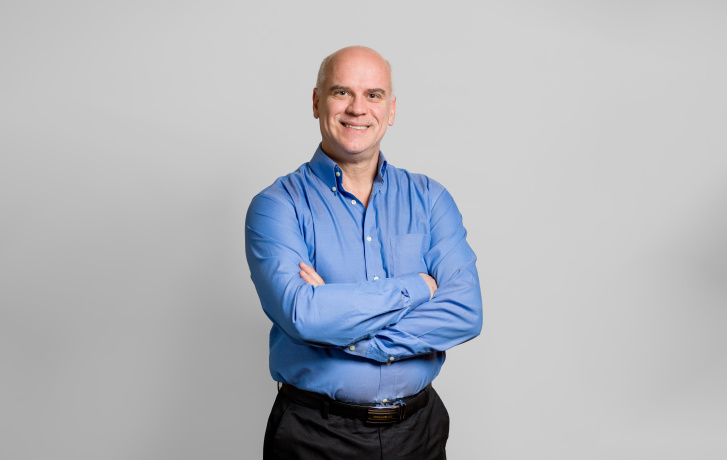Montréal, 24 October 2023. Thanks to a $3.7 million grant over three years, the team from the Laboratory of Space Technologies, Embedded Systems, Navigation and Avionic (LASSENA) at École de technologie supérieure (ÉTS) will design a robust and reliable navigation, geo-tracking and surveillance sensor based on signals of opportunity (SoOP). These signals, emitted by low-orbiting satellites and cellular telecommunication towers, represent a promising avenue for the safety of autonomous vehicles on land and in the air.
“The work, led by Professor Landry on signals of opportunity, may lead to the development of a disruptive technology that could potentially become an industry standard by the end of the decade,” says Xavier Louis, Director of Research and Development for Thales Avionics Canada.
“We are pleased to partner with Professor Landry and his team in developing an innovative technology that will help make Quebec a world leader in the navigation, geo-tracking and surveillance systems market,” adds Pierre Olivier, Chief Technology Officer, LeddarTech.
the sky is blue
Today’s Global Navigation Satellite Systems (GNSS), which most transport-related applications rely on, cannot serve as the primary means of navigation for autonomous transport because they can be easily jammed or spoofed. The goal is to develop a compact and cost-effective complementary system that ensures the integrity and availability required for the safety of future autonomous transportation vehicles.
“Signals of opportunity will make up for the shortcomings of current positioning systems, as they rely on diversified frequencies and modulations making them robust to jamming and capable of detecting cyberattacks. They also have the advantage of being low latency and of higher power than GNSS, allowing, among other things, for the deployment of a passive surveillance function,” explains René Jr Landry, Professor-Researcher at ÉTS and Director of LASSENA. As a result, they are ideal for mission-critical applications such as autonomous transport, but also for the Internet of Things and smart cities.”
Research into integrating the components needed to operate autonomous transport systems must continue to meet the standards set by regulatory agencies. Professor Landry and his partners believe that the innovations resulting from this research will provide solutions to ensure the safety of new means of autonomous transport. They will offer alternatives to the inertial navigation systems currently used in civil aviation, supplementing the global satellite navigation systems.
What is more, as this method is especially effective at crossing natural or man-made barriers like mountains or buildings, it could become an industry standard, not to mention its robustness in countering cyber-attacks and detecting malicious intrusion and jamming.
The project, funded by the Natural Sciences and Engineering Research Council (NSERC) Alliance program, will bring together the Consortium de recherche et d’innovation en aérospatiale du Québec (CRIAQ), Thales Canada and LeddarTech. This is the largest amount received by ÉTS under this program.
Training Highly Qualified Personnel:
This research activity will contribute to training some fifty highly specialized people, who can transfer their knowledge to industry.
The team is currently recruiting master’s students, PhD students and postdoctoral researchers to carry out this research activity. Qualified candidates interested in this project are invited to send their cover letter and CV to Professor Landry at: Renejr.Landry@etsmtl.ca

Information:
École de technologie supérieure (ÉTS)
Communication and Recruitment Service
Chantal Crevier
514 396-8800, ext. 7893
![]()

